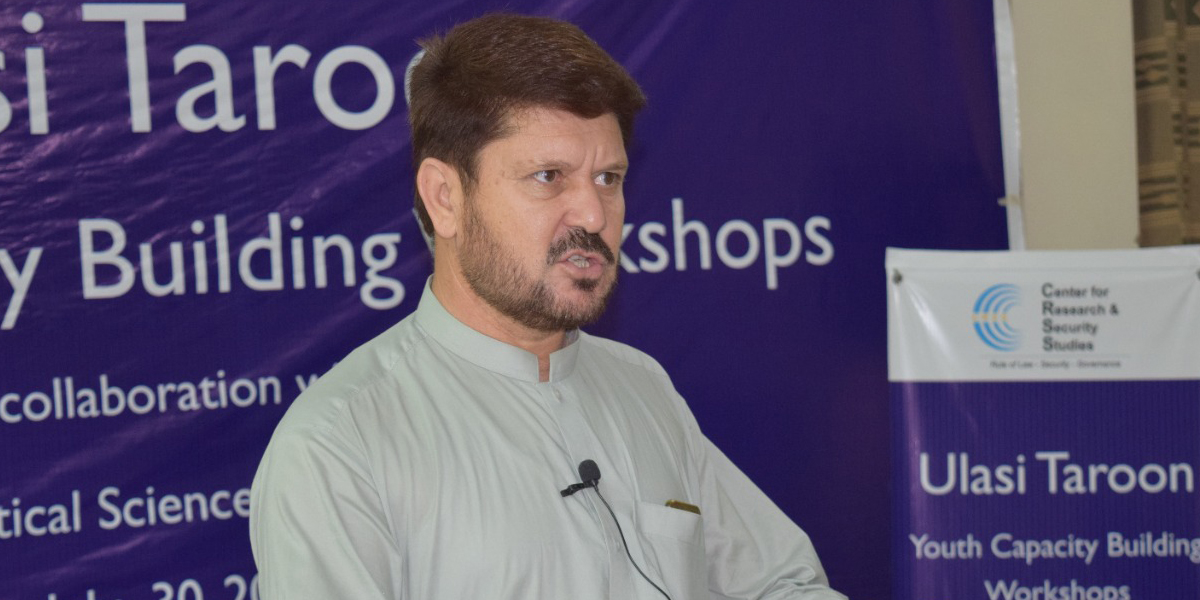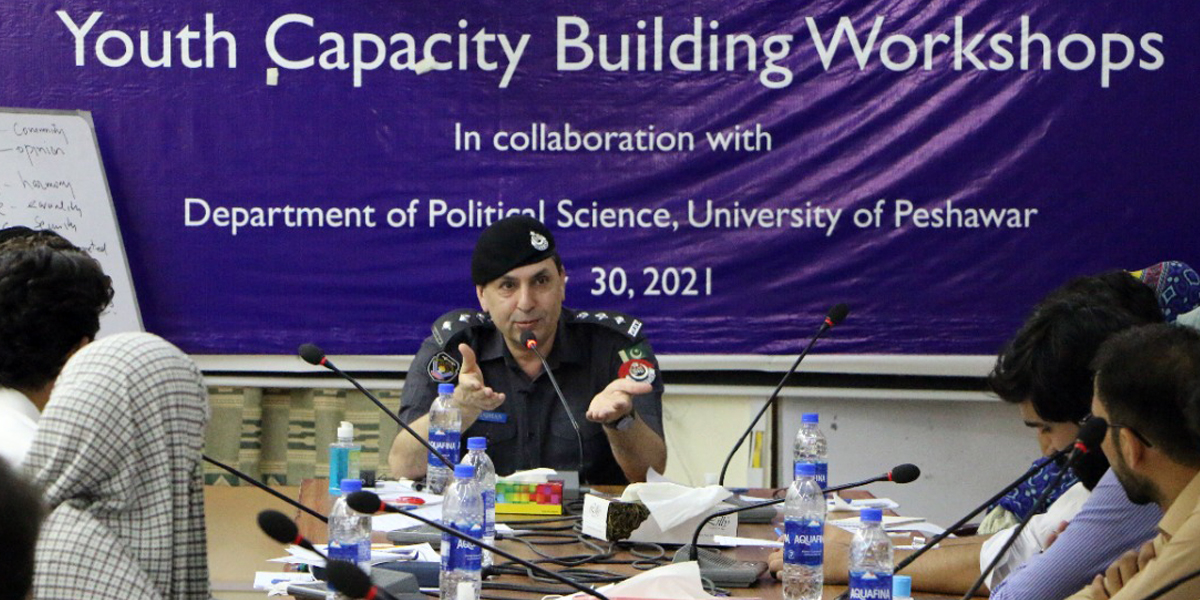A friendly public-police relationship is a must for rule of law and to cultivate responsible citizenship, said the Sub Divisional Police Officer, Peshawar, Mr. Luqman Khan during the 33rd round of Ulasi Taroon Youth Capacity Building Workshops, organized by the Center for Research and Security Studies (CRSS) at and in collaboration with the Department of Political Science, University of Peshawar.
He said that rule of law is upheld not just through indiscriminate application of law but also the justice timely and equally accessible. Cooperation between state institutions where they also observe their respective constitutional limits strengthens and results in high standards in rule of law.
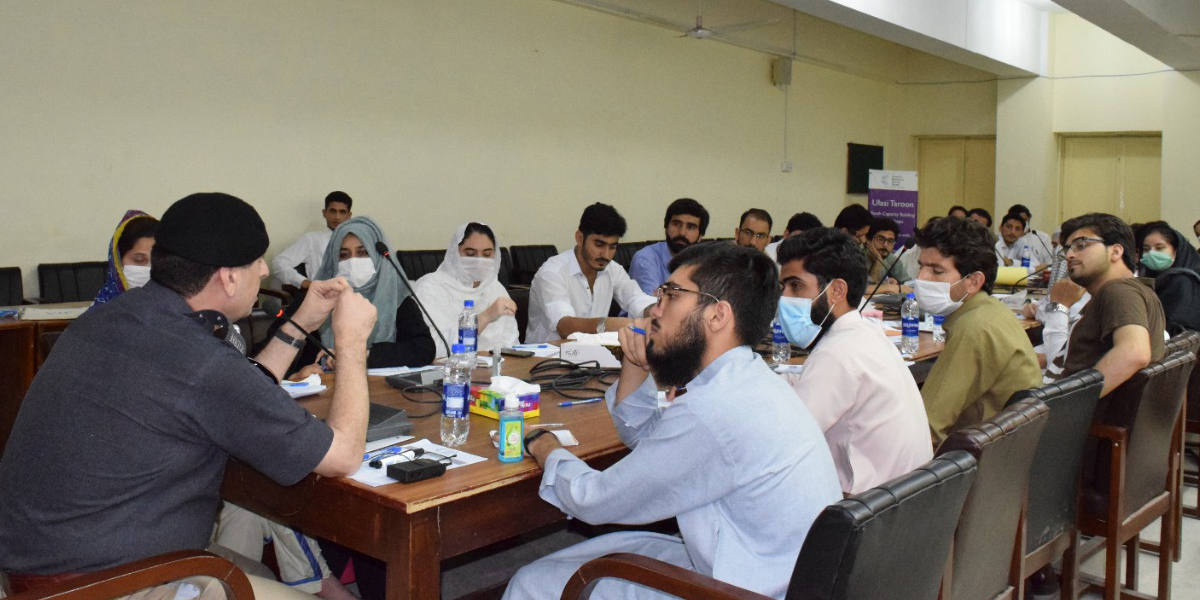
Social media has a tremendous potential to strengthen rule of law manifest in how it allows citizens to voice their concerns and highlight human rights violations in the society. However, only the news and information from credible sources should be shared on the medium. As the major group of social media users in Pakistan, there is a huge onus on youth to use the medium to reinforce the need for respecting core constitutional values, law of the land, upholding rule of law and promote social cohesion. Youth needs to understand the importance their role as harbingers of change.
Constitutional education of citizens is extremely important for rule of law, responsible citizenship, to harness their power for just and cohesive society, and strengthen their relationship with the state. The lesser the exceptions in law, the stronger the rule of law, he concluded.
The second guest speaker, Dr Jamil Chitrali, from Institute of Peace and conflict Studies, University of Peshawar noted that the need for peace and peaceful coexistence came up as one of the most significant realizations in the evolution of human society.
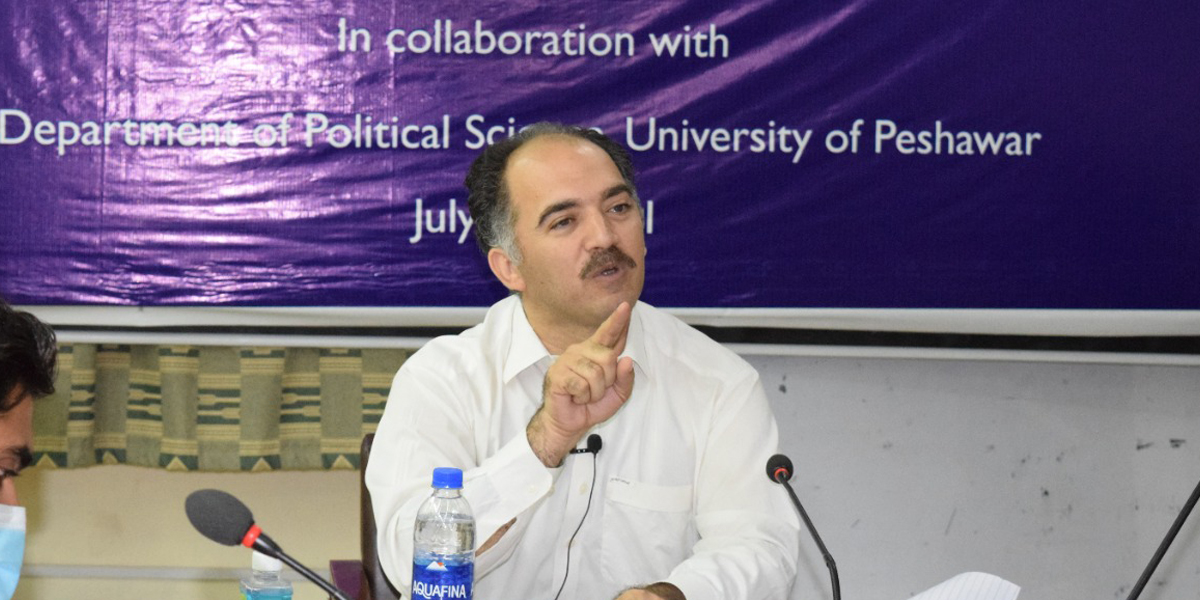
He also referred to the concept of political economy as a phenomenon which sets the principles for equal distribution of resources in a state, inclusion of the citizens and decision making while giving due regard to the cultural values and norms.
One of our best opportunities for social cohesion is promoting respect for constitution of Pakistan; as it is a unifying force for social bonding. Peace is directly linked to constitutional literacy at grass root level and greater awareness of political rights only strengthens the democracy.
Youth, as future leaders, should cultivate the habit of critical thinking and master the art of reasoning. They should critically look at the manifestos of the political parties while exercising their right to vote.
The lead trainer for Ulasi Taroon, Ms. Shagufta Gul explained in her session that the cohesion in a society depends upon the level of respect for and compliance with the core constitutional values of equality and acceptance, and a selfless vision of the citizens.
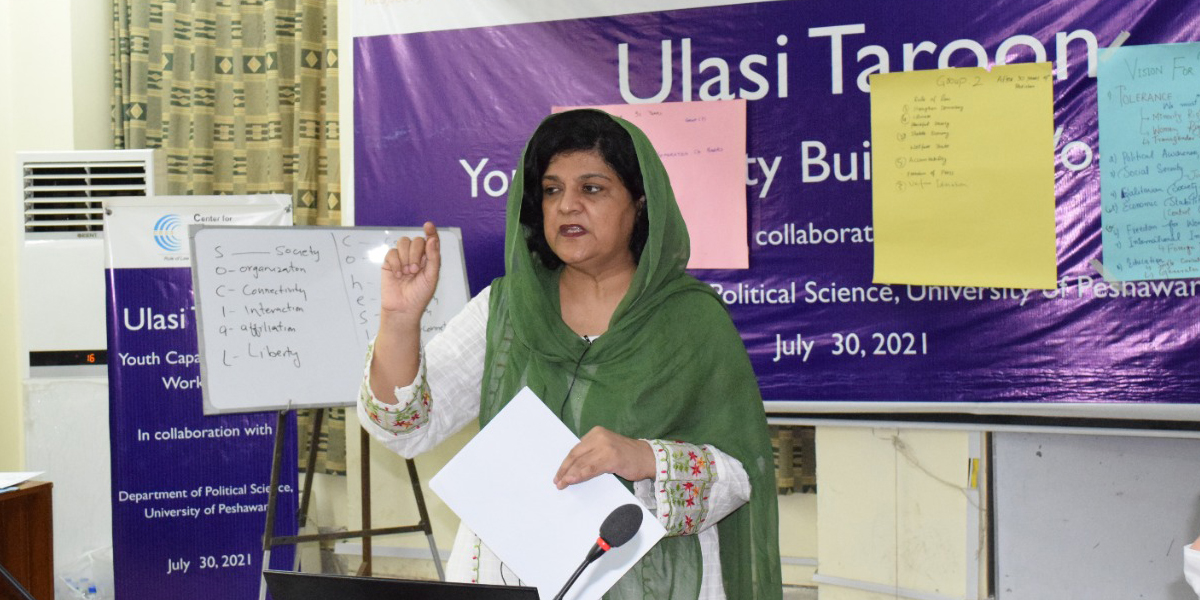
Conflict resolution is one of the most essential soft skills that youth need to master, besides critical thinking to materialize the vision of social cohesion. We cannot deal with the crises like COVID-19 without social cohesion. Rights and responsibilities come hand in hand and are inter-reliant, she concluded.
Mr. Shams Mohmand, Project Manager, CRSS highlighted the importance of media and its use for strengthening social cohesion. He explained that media has evolved as an opinion maker in all its three forms namely social media, electronic media and print media. He emphasized that youth as future leaders must develop and the practice the skills of critical thinking while reviewing, receiving and sharing the news.
